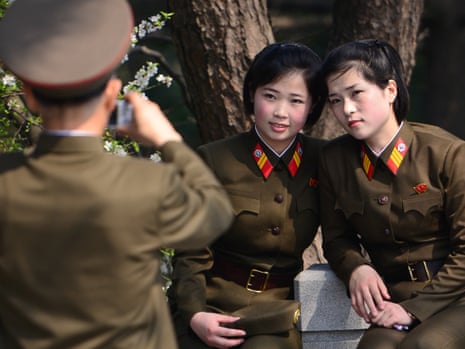North Korea's Cosmetic Surgery Regulations: A Closer Look

On May 15, the North Korean state newspaper, 노동신문 (Rodong Sinmun), highlighted Kim Jong-un's emphasis on 'people-first' policies. Recent reports indicate that cosmetic surgery is becoming increasingly common in North Korea, although procedures that completely alter one's appearance or change fingerprints are strictly prohibited.
The U.S.-based North Korea-focused media outlet, 38 North, revealed on July 2 that North Korea's 'Cosmetic Surgery Law,' enacted in 2016, has been made public. This law was discovered in a North Korean legal database found on domestically produced smartphones, as part of the NK TechLab project.
The Cosmetic Surgery Law was established during a Supreme People's Assembly Standing Committee meeting on November 23, 2016, and has undergone two amendments on June 23, 2019, and February 6, 2024.
This legislation allows for a broad range of elective cosmetic surgeries, justifying them by stating that the state is working to ensure that citizens can enjoy a healthy and beautiful appearance, which is a fundamental requirement of the people-centered socialist system. It further asserts that the state must continue to develop cosmetic surgery to serve the purpose of enhancing the people's appearance.
Article 11 of the law details the circumstances under which cosmetic surgery is permitted, including the correction of congenital deformities, repair of damage from soft tissue trauma, burns, tumors, inflammatory diseases, and treatment of orthopedic trauma patients. It also explicitly allows for surgeries aimed at aesthetic enhancement, although specific examples are not provided.
While gender reassignment surgery is generally prohibited, the law does leave room for exceptions in 'special cases,' though it does not clarify what these cases entail.
However, not all cosmetic procedures are permitted. Surgeries that completely change a person's facial appearance or alter fingerprints are strictly banned. 38 North suggests that these restrictions are likely for internal security reasons, indicating the importance of biometric security in North Korea. Additionally, procedures like eyebrow or eyelash tattoos, which are common in South Korea, are also limited due to their perceived incompatibility with socialist lifestyles.
According to the law, cosmetic surgeries can only be performed in specialized plastic surgery hospitals, central hospitals, or designated plastic surgery departments in provincial hospitals. Local clinics and general hospitals across North Korea are not authorized to conduct these procedures. Only doctors with 'plastic surgery specialist qualifications' are allowed to perform surgeries in designated facilities. 38 North notes that the existence of such regulations implies a significant number of legal procedures or issues related to illegal surgeries that necessitate regulation.
This is the first time the Cosmetic Surgery Law has been publicly disclosed, but there have been occasional reports from North Korean state media and foreign news outlets indicating a growing demand for cosmetic surgery and advancements in medical technology within the country. In 2007, Daily NK reported an increase in demand for double eyelid surgery and eyebrow tattoos in North Korea. The same outlet also reported in 2019 that an amateur 'facial surgeon' was executed for performing illegal procedures.
What do you think?
0 reactions





